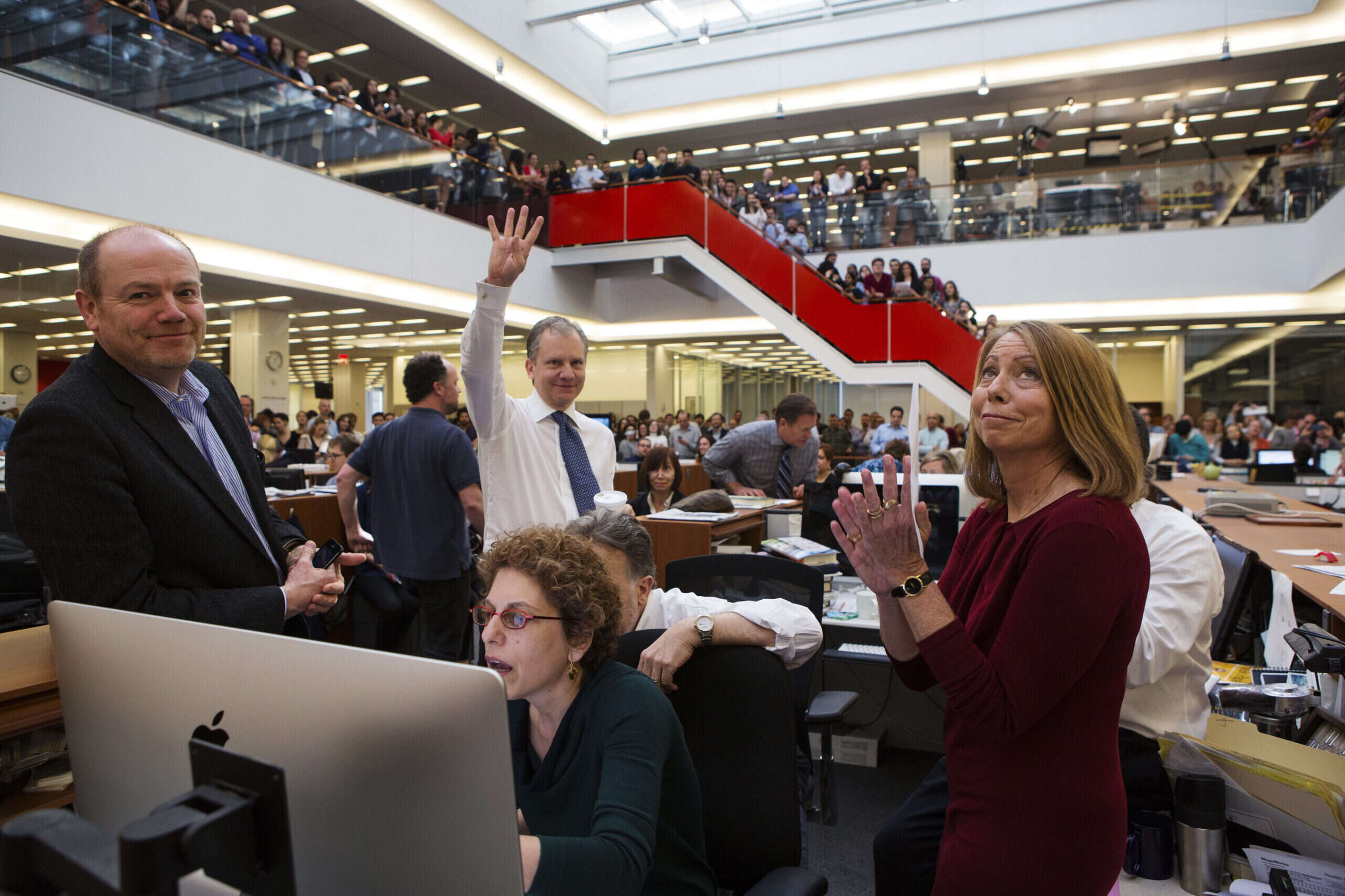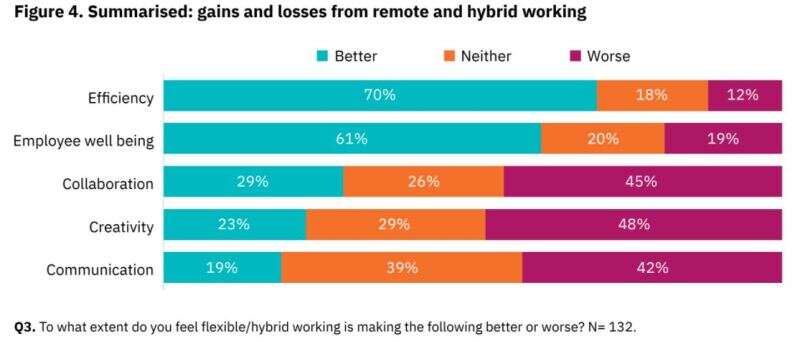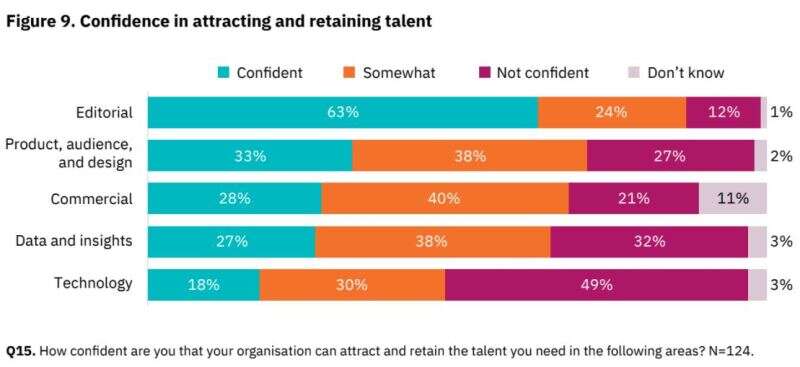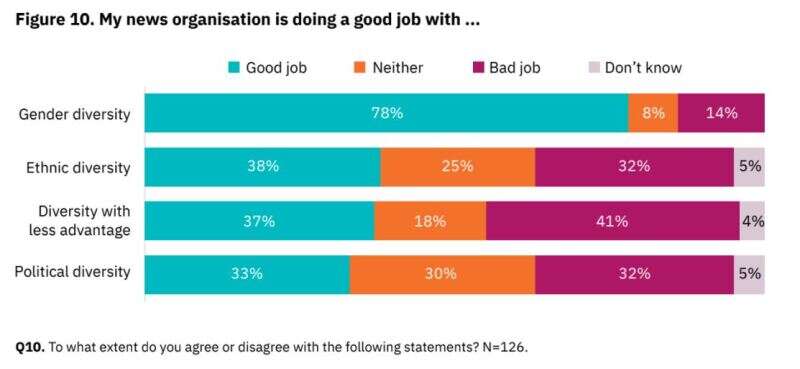
Pandemic-led changes to the nature of the newsroom look to be permanent and global, according to a new Changing Newsrooms report from the Reuters Institute for the Study of Journalism.
Researchers spoke to 132 senior news industry leaders from 42 countries and found that 89% are now committed to a mixture of remote and office-based working. Just 9% plan to return to the same working model as before the pandemic.
The Changing Newsrooms 2021 report found that efficiency and employee wellbeing both improve as a result of remote or hybrid working. But collaboration, creativity and communication appear to suffer.

The mental health of staff is a widespread concern among news industry leaders.
Tracey Kirkland of ABC said: “You have staff that are very anxious and are really struggling with their mental health and then there are others that sailed through – it really depends on the person’s personality and the job that they’re being asked to do.”
Reach is one major UK publishers which has signalled a permanent shift to remote working, having closed three-quarters of its newsrooms. It has organised online book and film clubs and social cook-alongs. Staff also get a free subscription to a mindfulness app (Headspace), an online wellness hub and access to counselling if needed.
Reach publishes 180 national and local news brands out of 15 offices around the UK. Staff have been offered new contracts designating them either as home workers, home-workers linked to a hub (who need to go in for meetings) and hub workers who are based in the office.
Reach audience and content director for the North West Alison Gow said: “‘I think it definitely allows reporters to be more with their communities. There were reporters here who would have to drive 90 minutes to get to the office because of the geography, and they don’t need to. They can work really efficiently from home. They can be in the corner shop because they’ve run out of milk. They can be a local voice and a face.”
US-based online publisher Quartz has signalled that it is now a “fully distributed company” with any employee able to work anywhere.
BBC News has allowed specific managers to decide on the office/home working mix.
BBC development director for BBC News and Current Affairs Katie Lloyd said: “We’re putting a lot of trust in our team leaders and managers to design what’s best for their teams because the requirements of teams are so different depending on what they do.”
Recruiting and retaining talent is a major post-pandemic challenge identified by the survey when it comes to technology, data and commercial roles.

When it comes to diversity, publishers said addressing ethnic diversity was the most important challenge (35%) followed by gender (26%) and then helping those from less advantaged backgrounds (17%).

The Reuters survey results reflect a major piece of research which Press Gazette conducted after a year of lockdown and which found that most newsroom staff prefer remote working and find they are more productive.
Email pged@pressgazette.co.uk to point out mistakes, provide story tips or send in a letter for publication on our "Letters Page" blog
